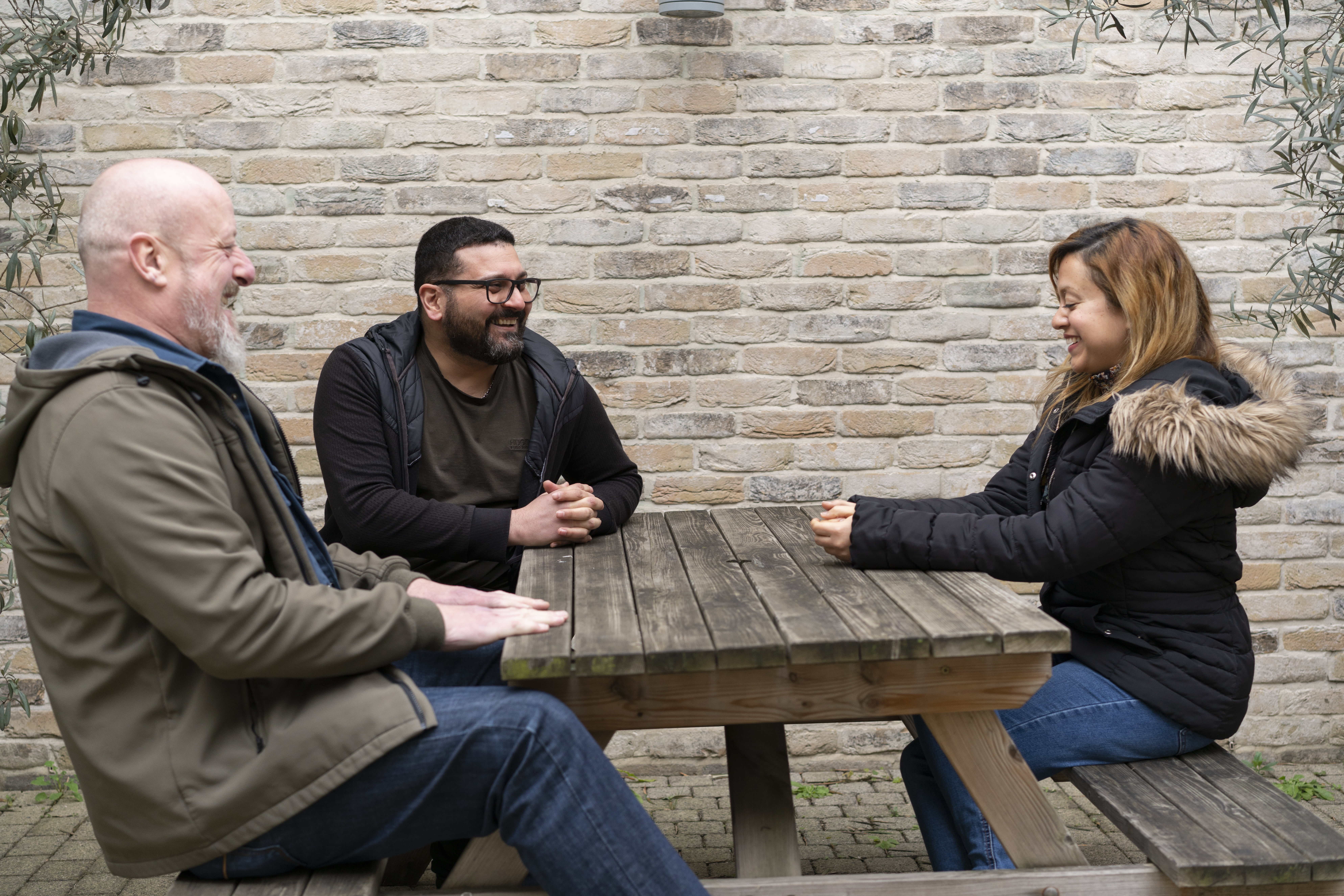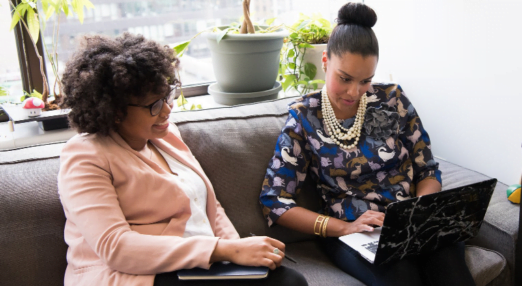Criminal Justice
Too many people pass through the criminal justice system without their mental health needs being recognised. With more than 70 per cent of the prison population experiencing mental distress, it is crucial that services exist to ensure that people get the care and support they want and need and at the right time.

Since 1993, Together’s Criminal Justice Services have been working alongside people that has successfully broken a cycle of offending for thousands of people. The people that benefit from our services have backgrounds and circumstances that reflect challenging life experiences and multiple disadvantages.
The people we work alongside may have experienced all or some of the following:
- Mental distress
- Substance misuse
- Poverty and debt
- Homelessness
- Unemployment
- Learning disability
- Domestic violence and abuse
- Speech and language problems
Groups of people we support may have faced discrimination including women or Black people and people from Asian and Minority Ethnic backgrounds and so require a carefully tailored and person-centred approach to take into account how that may have impacted them. 68% of the people supported within our Liaison and Diversion services are from black and ethnic minority communities and 23% are women. In both cases, a higher proportion of people would generally be found within the criminal justice system.
“I am rebuilding my life. I have taken part in a parenting course to rebuild my relationship with my children, received specialist debt advice and avoided eviction from my home. I am immensely grateful for the support.”
Our approach
Together takes a collaborative learning approach to working within the criminal justice, health and social care systems. We share our expertise to bring about change with people experiencing mental distress, with the services working alongside them and with the systems surrounding them.
Our approach is underpinned by the following principles:
- We embrace vulnerability as a starting point for the person’s journey of change and, growth
- We focus on building people’s own resilience and resources. We see the whole person rather than a collection of individual problems to solve.
- We have a thorough knowledge and expertise of how to apply clinical and psychological practice within criminal justice settings.
- We are continually adapting to changing environments. Learning from the people who want and need our services is at the heart of everything we do.
- We build effective partnerships that will stand the test of time. For us, partnerships must change lives for the better. (Register your interest in partnering with us.)
- We empower people to make choices when choice seems impossible.
Together supports the NICE quality standard for the mental health of adults in contact with the criminal justice system. This is an important standard that guides our work and of which we were involved in its development.
Resources
In October 2024 Together’s criminal justice team contrbuted to a national sentencing review based on the experience of supporting people with lived experience of mental distress in the criminal justice system. Download the report below:
Independent Sentencing Review – Together CJ Service points for consideration
Awards
Our work has been highlighted as a good practice example in the Bradley Report (2009) and Reforming Women’s Justice (2011) and our services have won or been shortlisted for a number of awards, including the Howard League’s Community Programme Awards.
In 2018 our Chief Executive, Linda Bryant, was awarded the Criminal Justice Champion Community Award by the Howard League for Penal Reform, for her years of dedication in her previous role at Together as Director of Criminal Justice Services.
Our Peer Support service, part of the Community Liaison & Diversion service, was shortlisted and commended at the Marsh Awards on Mental Health Peer Support in 2019, in the category of Peer Support in Marginalised Communities.
We are a member of various influential forums, including the Transition to Adulthood and Clinks. Together has also been supporting the work of the national Liaison and Diversion Programme led by NHS England.
Continuous learning and improvement
We continually seek ways to monitor and improve our practice and service design, and a number of independent studies have explored the impact of our work. A team of data analysts supports our criminal justice team to use and interpret information from our services, in order to adapt and improve our approaches. In addition to this, a panel of people with lived experience of the criminal justice system gives feedback and advice to the team, using their own experiences to inform future practice and project delivery.
You can read about our collaboration with London probation in the paper below:
Training and expertise
We provide specialist training to professionals working in criminal justice and healthcare settings, to enable them to more effectively work alongside individuals experiencing mental distress as well as a range of other needs. Our expertise includes training around mental health awareness, dual diagnosis, personality disorder and how to support specific groups, such as women who are engaged with criminal justice services. This has led to the development of two ‘common sense’ guides (see links at the top right of this page), which are designed to be used to support the development of further training.
Our areas of work:
We identify and work alongside people of all ages passing through the criminal justice system who experience mental distress and other vulnerabilities, to support their access to care and support services in the community.
The Community Harm Exploitation Operational Group (CHE-OG) is a multi-disciplinary initiative aimed to address the serious issue of urban violence in the borough of Southwark that includes Serious Group Offenders.
The aim of the service is to improve the mental health and wellbeing of offenders, address their health and social care inequalities and assist in the management of risk to protect the public.
Youth to Adult Service is a 15-month pilot, commissioned by the Mayor’s Office for Policing and Crime (MOPAC). The service is led by East London NHS Foundation Trust (ELFT) and it is a partnership between ELFT, Together, London Pathways Partnership (LPP) and Rights and Equalities in Newham (REIN).
Women’s Mental Health Treatment Requirement is a pan-London service to reduce custodial sentences and improve the wellbeing of women in the criminal justice system with mental health needs.
Together’s Mental Health Service for London Integrated Offender Management (IOM) aims to work alongside people on probation and in IOM who’ve experienced mental distress to support them with needs that may have caused them to repeatedly come into contact with the criminal justice system.
The Together Wellbeing Pathway (TWP) is commissioned as a part of the Offender Personality Disorder (OPD) pathway in London. The OPD Pathway is part of the Integrated Community Service (ICS), managed by the London Pathways Partnership (LPP) and the National Probation Service (NPS).
Together’s mental health consultant service provides support, advice and guidance to Nacro CAS-2 operational staff – to aid them in supporting the mental health needs of service users living in short-term temporary accommodation.
Peer support
Our Peer Supporters draw on their own experiences of mental distress and the criminal justice system to support others to overcome similar challenges.
Read more about peer support at Together.
Our work with women
Women who come into contact with the criminal justice system may often have experienced difficult life circumstances such as trauma, domestic abuse, trafficking and sex working. Nearly half of women in prison have suffered domestic abuse, and over half have experienced childhood abuse. A woman’s offending is usually a sign that these issues have not been identified, and that her needs relating to these experiences have gone unmet.
We look at all the circumstances and vulnerabilities a woman may be experiencing and work to understand what the underlying causes are that have brought her into contact with the criminal justice system. We then take a collaborative approach, working alongside the woman and local organisations that can support her in tackling the difficult things in her life.
In January 2018, the Prison Reform Trust published an evaluation of the training that we delivered to criminal justice professionals on the specific needs of women. We were delighted that the evaluation found that 88% of participants said that the training helped them to effectively develop an understanding of how the needs that women have can effect them while detained in custody (police and/or court), with 71% saying that their knowledge of the support structures, pathways and services for female service users had increased.
In 2013, Together published a guide offering professionals working within the criminal justice system the tools to recognise and respond to the health and wellbeing needs of women.
In 2012 Together Head of Regional Operations, Matina Marougka conducted research for The Griffins Society entitled ‘Sentencing women: Considering the factors that influence decision-making through interviews with sentencers & probation officers’
Our partnership working
Our criminal justice services are delivered through both formal and informal arrangements with partners, including NHS Trusts, Her Majesty’s Courts & Tribunal Service, Her Majesty’s Prison and Probation Service, police forces across the country and a range of other voluntary sector organisations.
Award for Lived Experience Charter Status
Together’s criminal justice services were awarded the Silver Award for the Lived Experience Charter from Career Matters.
Our funders
Our criminal justice services are commissioned and funded by a variety of organisations, including:
- NHS England
- HM Prison and Probation service
- Southwark Council
- Mayor’s Office for Policing and Crime (MOPAC)
- London Partnerships Pathway
- Women in Prison
- NACRO
Commissioning and partnering
If you are interested in commissioning us to deliver a service in your area, or in partnering with us, please contact Matina Marougka, Head of Regional Operations (London services)on 0788 019 1321 .
Enquiries
For general enquiries about our criminal justice services, please call us on 020 7780 7394 or email criminal-justice@together-uk.org










